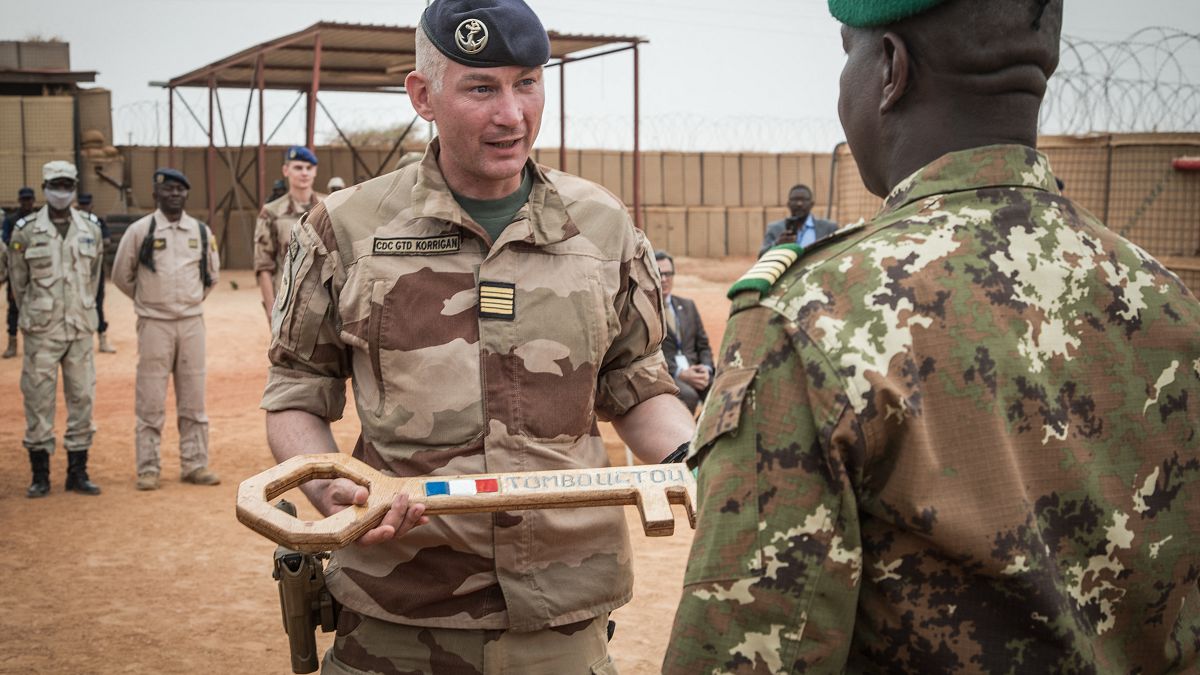The move comes as France reduces its troop numbers in the region in a drive to involve more international and local forces in the struggle against jihadists.
The French anti-jihadist military force in Mali handed control of the camp at Timbuktu to the Malian army on Tuesday, after almost nine years of uninterrupted presence in the northern area of the country.
The move comes as France tries to reinvent its commitment in the region, involving its European allies more as greater emphasis is put on making the military effort more international.
More reliance is also being put on local armies, which remain under-equipped and under-trained despite eight years of training provided by international partners.
About 150 French soldiers have remained in Timbuktu since the start of the French withdrawal in April 2013.
At the Timbuktu camp, the French flag was taken down and the Malian flag hoisted in its place on the base, in front of a small group of French and Malian soldiers and local and UN authorities.
French General Etienne du Peyroux, head of the anti-insurgent Operation Barkhane in Mali, exchanged a brief handshake with the camp's new Malian commander. He symbolically offered him a large wooden key, as a French military plane flew low overhead.
The French commander of the base said France's mission in Mali would continue. De Peyroux added that France would be "present differently", allowing Mali to take control of its destiny while offering "partnership".
The final departure of the French soldiers represents a turning point. Operation Barkhane is being wound down, as announced in June, as French forces in the Sahel are gradually reduced.
It was in Timbuktu, a holy city of Islam listed as a UNESCO World Heritage Site, that France's then President François Hollande formalized the start of the French intervention on February 2, 2013, amid scenes of jubilation after eight months of jihadist control.
Almost nine years later, jihadist groups have spread and regrouped under Al-Qaeda and the self-proclaimed Islamic State group, which have extended their influence to neighboring Niger and Burkina Faso.
Their presence, according to a report by the International Crisis Group think-tank, is "hegemonic" in large areas of northern and central Mali.
Between Timbuktu, Kidal and Tessalit, 425 French soldiers have been withdrawn from the three bases. French troops in the Sahel will drop "from around 5,000 soldiers in the summer of 2021" to "around 3,000 in the summer of 2022", according to Barkhane commander General Laurent Michon. Further reductions will take place by 2023.
The political context is tense: relations between Paris and Bamako have become strained since the double coup d'état in Mali (in August 2020 and then in May 2021) and Barkhane is facing growing hostility in the area.
Next to the now former French camp is a large UN camp with several thousand peacekeepers. The French camp is due to be replaced by a Malian air base.
